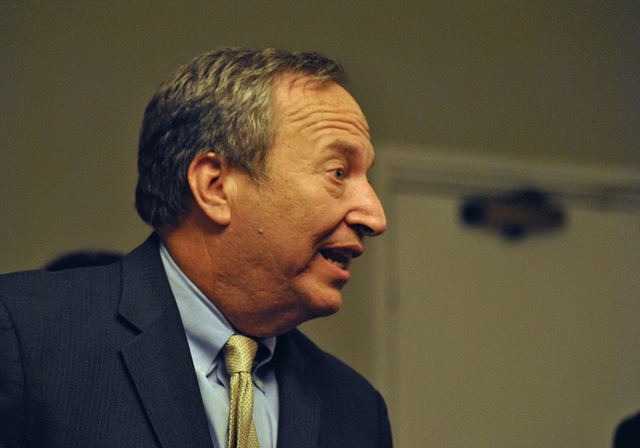
On September 15th, Lawrence Summers unexpectedly withdrew from consideration to replace Ben Bernanke as the chairman of the Federal Reserve. Mr Bernanke will step down in January 2014, when his second four-year term ends.
Mr Summers, the former Treasury secretary and senior economic adviser to President Barack Obama during his first term, pulled out of the contest after some Democrats from the Senate Banking Committee, which has to confirm a nominee, publicly opposed his nomination.
Mr Summers, who was thought to be Mr Obama’s preferred candidate, has been dogged by his commitment to deregulation in the 1990s.
A lack of regulations is regarded by many as the main cause of the crisis in the financial sector, not the collapse of US investment bank Lehman Brothers, which was only a result of the economic meltdown.
The Glass-Steagall Act, which had separated commercial and investment banks, was repealed in 1999 at a time when Mr Summers was the secretary of the Treasury. Consequences are well known.
Banks undertook the excessive risk, but had not enough capital to meet the risk. Bankers, whose salaries were dependent on short-term returns, invented complex and toxic products, known as derivatives, which amplified the crisis, destroyed financial giants such as AIG, an international insurance corporation, and almost brought down the entire financial system.
Banks became too big to fail. They knew that when things went wrong, the government would have to rescue them. That only gave bankers incentives to engage in excessively risky behaviour. The self-regulation of financial markets – which was cherished by Mr Summers, Allan Greenspan, the former Fed chairman, and Robert Ruben, the former secretary of the Treasury – didn’t work.
If Mr Obama had nominated Mr Summers, he would have needed to persuade Republicans to support his choice, which was unlikely, given that Mr Summers is reviled by Republicans for his association with Mr Obama’s 787 billion dollars economic stimulus, which was passed by Congress at the height of the financial crisis in 2009.
Janet Yellen, the Fed current vice-chairman, is now the leading candidate to succeed Mr Bernanke. If she is appointed, she will be the first woman to chair the Federal Reserve. Mr Obama is expected to make a decision in the autumn.
photo: Chatham House / flickr.com / CC BY 2.0